QuestionI bought a blue masked lovebird for my wife about 6 weeks ago, we have been told it is somehwere between 3-6mths old, but we do not really know. I bought it from petsmart, which I have recently learned, was a big mistake since we wanted a tamed bird. My questions are,
1. Why does the bird constantly bite at his/her feet? We have about 5 toys in the cage all different colors/varaties
2. Are there any sure fire ways to tame this bird, he is scared to death of me, and my wife, more me than her. I think we are making some progress since now the bird will not fly away when we put our hand in the cage, but will let us touch him after he tries to bite a few times.
3. Are there any foods we should avoid or should be providing in place of the regular food he is on now? We were told sunflower seeds were a big mistake, something to do with agression. Right now he is on a food called Topper Bird Ranch Diet.
4. Last but not least, is there anyway to determine the age of the bird, or the sex without the bloodtest.
AnswerHi, Brandon. Thanks for posting your questions.
1. There could be several reasons for the bird biting at it's feet. Sometimes this is a sign of stress, similar to a human biting their fingernails. It could also be scaly mites or something medical. Scaly mites usually show up on parakeets, but can on other parrots. They affect the area around the beak and toes/legs. Mites usually would come from the wood of perches taken from trees outside. This condition would look like crusty, raised areas (similar to warts on humans). If not, then I'd say it's stress related. As long as the lovebird isn't drawing blood, I wouldn't worry, unless you think it might be medical. Then you need to take the lovebird to a bird vet.
2. Birds soon learn that if/when they bite at humans, humans will leave them alone in most cases. This is especially true of birds from pet shops, where there are many people poking at them all day. This is most likely why your lovebird is afraid of you. S/he hasn't had many good experiences with humans up to this point in it's life. You are doing good if you've gotten past the point where the lovebird will let you touch it, even though s/he tries to bite at first. You should reward this lovebird when s/he does not bite by giving s/he a treat. Always reward positive behavior and never reward negative behavior. Another thing...the inside of a bird's cage is it's own space. I do not know many parrot's that will allow their humans to invade in their space inside their cage. The best thing to do is to let the bird come outside the cage, then work with it. If you can get the bird to step up on your hand inside the cage, this is great, but unusual. Also, keeping both wings clipped will help to tame the bird/keep the bird tame. This is because s/he can't easily fly away from you every time you want to work with it. S/he will be at your mercy to get from here to there, etc.
3. Avoid chocolate, caffeine, citrus seeds, avocado, too much salt, too much sugar. Seed, especially sunflower seed, contains much fat...not good for humans, nor parrots! Seed also has little nutritional value. Parrots love it because it tastes good to them...like candy to a child. I recommend seed only as a treat for parrots (my parrots only get seed 1 time per week). I recommend fresh vegetables and fruit one time per day, with pelleted food in the cage 24/7. I think the theory about aggression comes from the fact that a bird on a poor diet isn't healthy, thus doesn't feel well most of the time, etc. I don't think seed actually makes a parrot aggressive. Be aware that parrots won't eat anything they don't recognize as being food, so when switching your parrot's diet, continue to offer the new food each day...s/he will eventually try it when it realizes what you are offering is food. Sometimes it helps for the parrot to see it's human consuming the new food. Most parrots ALWAYS want a bite of what it sees it's human eating! One thing you might try is to set the lovebird near you when you are having dinner, and offer the parrot some of what you are having for dinner (the nutritious stuff only).
4. If the lovebird has a legband, you can trace the numbers on the legband back to the original owner of the parrot and see if the breeder has records on the age of the bird. Or you could ask the pet shop to provide you with the name and number of the breeder and call to see if you can get more details on the lovebird you purchased. Sometimes you can tell from the coloration of a bird it's approximate age (if it hasn't moulted for the first time yet, etc.). But this is difficult to impossible on lovebirds. Also, with lovebirds, in order to be 100% accurate of sex, you need to have them DNA sexed. This isn't hard to do yourself and is inexpensive. It's also not painful for the bird. I have a website under development that has lots of information on diet, taming, sexing, etc., if you want to visit: http://www.angelfire.com/falcon/birdinfo/index/html
If you've only owned this lovebird for 6 weeks, it still may not be used to it's move, it's new environment, or you. So don't be too critical of the bird because s/he might not yet be settled into it's new environment. After being in a pet shop, it's been through some traumatic experiences so far in it's young life and may take more time to come around.
If you need more information, please come back. Thanks.
Chrys

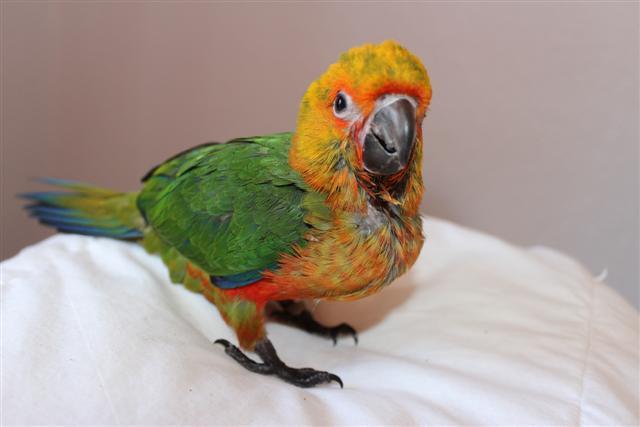 Jenday Conure Weaning?
Question
Castor the Conure
Hi
I have a 9 week o
Jenday Conure Weaning?
Question
Castor the Conure
Hi
I have a 9 week o
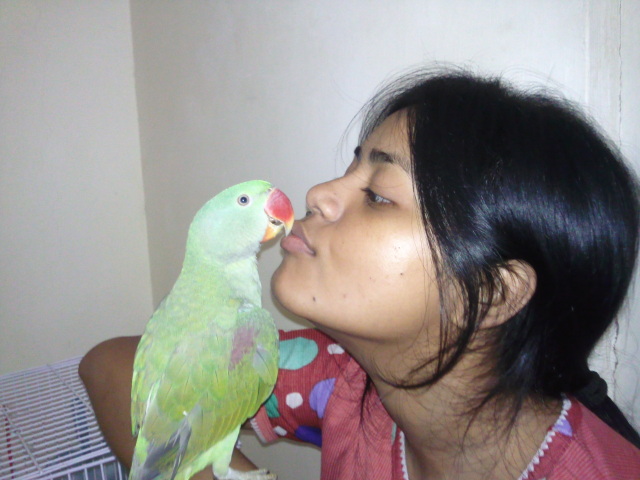 can i give my parrot chole(chana) called in hindi
Question
my little chaddi alexa
dear sir,
can give chan
can i give my parrot chole(chana) called in hindi
Question
my little chaddi alexa
dear sir,
can give chan
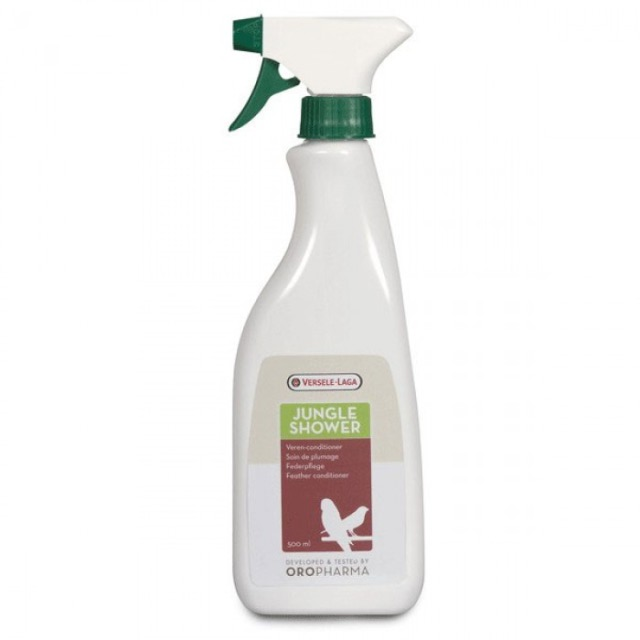 Indian Ringneck Health Issue
QuestionI have an Indian Ringneck who had been neglecte
Indian Ringneck Health Issue
QuestionI have an Indian Ringneck who had been neglecte
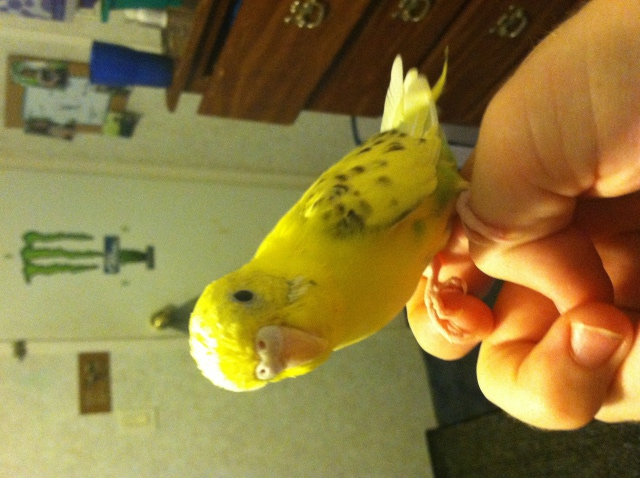 Parakeet gender
Question
Parakeet
Hi, I looked for an expert und
Parakeet gender
Question
Parakeet
Hi, I looked for an expert und
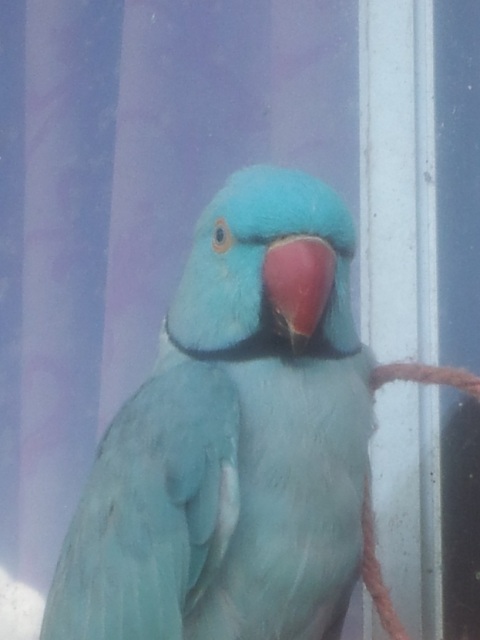 RE: Indian Ringneck probems
Question
Indy our Ringneck
Thank you for your he
RE: Indian Ringneck probems
Question
Indy our Ringneck
Thank you for your he